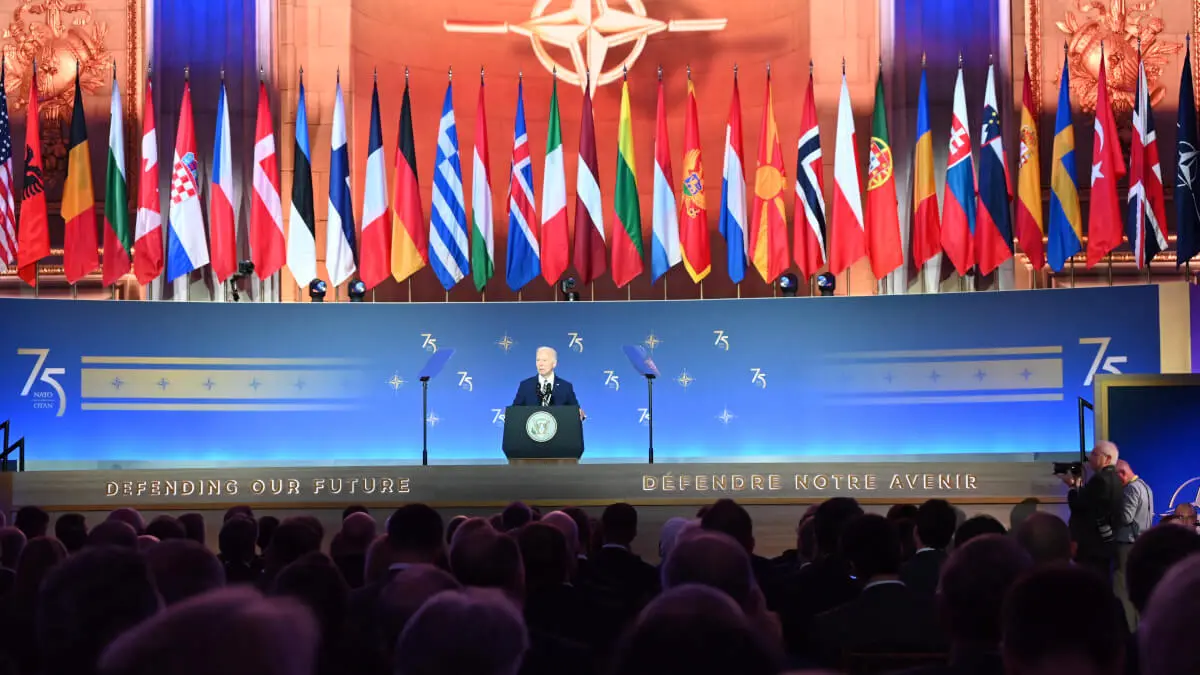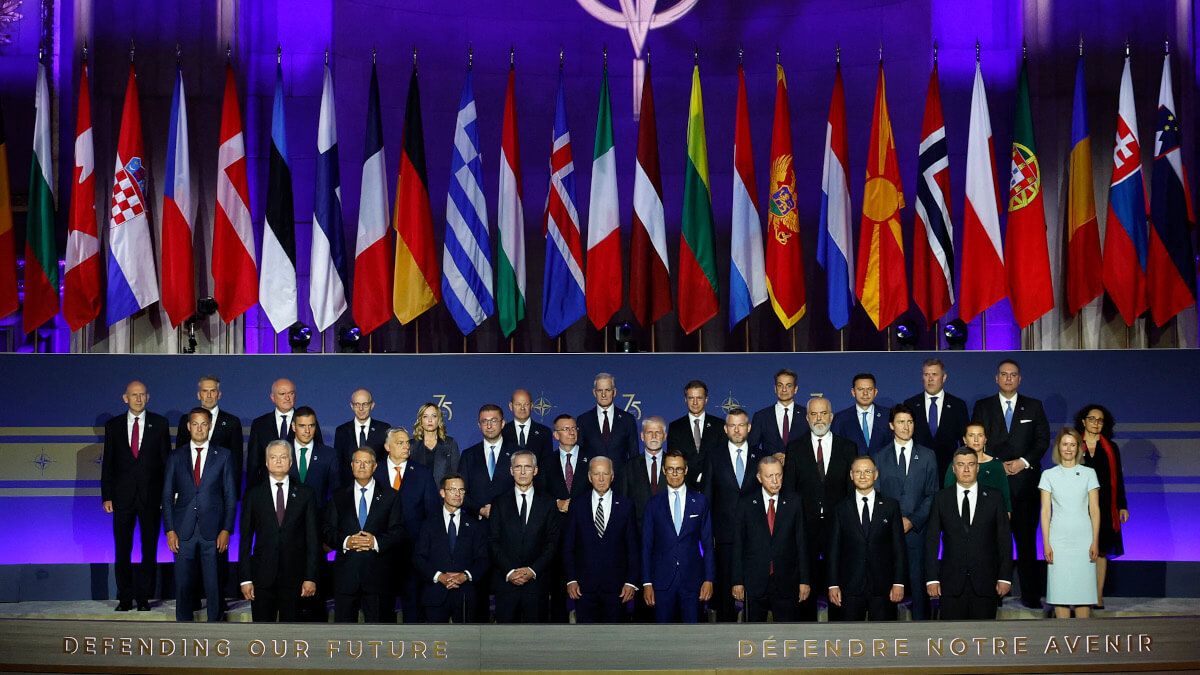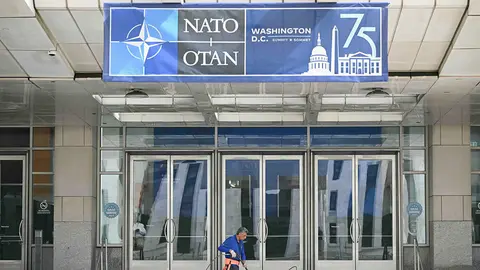Ukraine's air defence and NATO membership: highlights of the first day of the Washington Summit

As expected, Ukraine is the focus of the NATO summit in Washington these days. The Alliance, which is also commemorating its 75th anniversary, has positioned itself as Kiev's main ally in the midst of the Russian invasion and pledged to maintain that support.
On the first day of the summit, US President Joe Biden stressed NATO's unity while underscoring Washington's unwavering commitment to the alliance amid fears that Donald Trump - a NATO sceptic - could return to the White House.
The former president and current candidate has hinted that, if he wins the November election, he would not defend NATO members that fail to meet the alliance's defence spending target of 2 per cent of their annual GDP if they were to come under military attack, reports Reuters. The Republican leader has also questioned the amount of aid given to Ukraine during its war against Russia.
"NATO is more powerful today than it has ever been," Biden said. "This moment in history demands our collective strength," the president and summit host added in a keynote address.
This summit is an opportunity for Biden, under pressure, to show his allies and voters that he is fit to continue to lead the country after his debacle in a presidential debate against Trump where he was indecisive and confused.
When the leaders of 12 countries came together 75 years ago, history was watching.
— President Biden (@POTUS) July 10, 2024
It had been four years since the end of the most devastating war ever known.
It was here where they made a sacred pledge that would become NATO, the greatest Alliance in history of the world. pic.twitter.com/NlGqhyueaV
Despite the criticism, 81-year-old Biden has ruled out dropping out of the presidential race and vowed to come back to defeat Trump at the polls. For the moment, Biden has maintained the public support of most of his party's leadership.
On the other hand, the US leader has based his foreign policy on traditional alliances after Trump made allies waver with his 'America First' slogan. These two different positions suggest that the winner of the November elections could have a significant impact on the future of NATO, Europe and the rest of the world.
For the moment, under Biden's leadership, the US has announced along with other NATO members that it is taking significant steps to strengthen Ukraine's air defences, a key point for Kiev.

The United States, Germany and Romania are sending additional Patriot batteries, while the Netherlands and other nations will donate additional components to operate a Patriot battery. Italy announced last month that it will send a SAMP/T defence system to assist Ukraine. Other allies, including Canada, Norway, Spain and the UK, will provide other systems aimed at improving Ukraine's defences, notes the Associated Press.
All of these strong decisions reaffirming support for Ukraine come at a "crucial time for Europe, NATO and the world", Biden said.
The president also referred to NATO's expansion following the recent accession of Finland and Sweden, an important step that, according to White House national security spokesman John Kirby, is due to "leadership, steady stewardship of the alliance and other partnerships around the world".
Honoured and humbled to receive the Presidential Medal of Freedom from @POTUS Biden.
— Jens Stoltenberg (@jensstoltenberg) July 9, 2024
I see this as a recognition not just for me, but for the millions of men and women who serve our great Alliance, in and out of uniform.
We are stronger and safer together in #NATO. pic.twitter.com/MQu8MqsR6e
In addition to these two Nordic nations, NATO is expected to give more details during this summit on Ukraine's future membership of the alliance. However, NATO, which is based on the founding agreement that an attack on one member is an attack on all, has stressed that it will not join Ukraine until the war with Russia is over. Equally, some members fear that Kiev's accession would provoke direct conflict with Moscow.
Although Ukraine's entry is not imminent, NATO will maintain its support for the country while members will continue to provide military assistance. In this regard, Kirby announced that the allies will discuss at the summit efforts to set up a coordination centre in Germany to help train, equip and coordinate the logistics of Ukraine's forces for their expected eventual NATO membership.
Meanwhile, US Secretary of State Antony Blinken said the summit would "further strengthen" the war-torn country's path to NATO membership.









